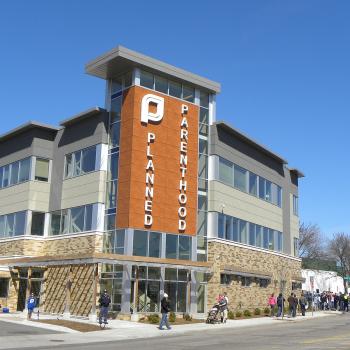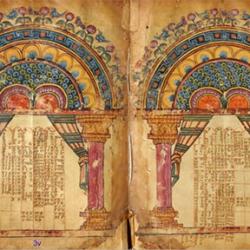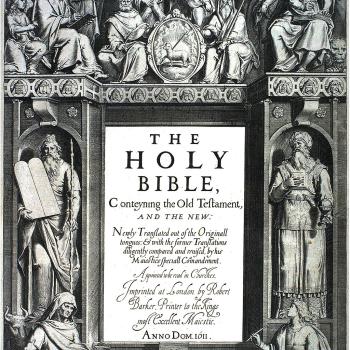I ask it seriously, but there are at least three reasons to dismiss my titular question as reflecting nothing but wishful thinking.
First, my own political views fit rather poorly with the platforms of the two parties that dominate America’s increasingly polarized system. According to the VoteMatch quiz from OnTheIssues.org, I align with no political party more than 45% of the time. So I’ve got a selfish (civic) interest in having a better option available.
Second, I’ve long been fascinated by third parties. When I was a somewhat precocious first grader, I even reenacted the 1848 U.S. presidential election with all my stuffed animals and managed to get the Free Soil Party candidate into the White House. (My teddy bear Percy was clearly a more persuasive opponent of slavery than Martin Van Buren.) As a professor, I’ve had my World War I students read about Eugene Debs’ presidential runs as a Socialist in 1912 and 1920, and my Cold War students get to learn more than they’d dream or desire about the Progressive Party that nominated Henry Wallace in 1948. So I’ve got a selfish (intellectual) interest in seeing a new party on the scene.
Third, whenever I’ve broached this kind of scenario with my political science colleagues at Bethel, they’ve invariably (and rightly) pointed out the structural obstacles to the rise of a new national party of significance: The U.S. is not a parliamentary democracy; we don’t have proportional representation, and ranked-choice voting is limited to municipal elections in a few big cities; the parties in power have little reason to overhaul our electoral system; etc., etc.
But that all presupposes that the Republican and Democratic parties will both remain in existence in their current form.
Now, I’m not sure another democracy our size has had two parties dominate its system as long as the sixteen decades these two have been duking it out. But the Republican Party emerged from the wreckage of the Whig Party, and there are more recent examples of the phenomenon in other countries (e.g., Canada, whose Progressive Conservatives were in and out of power for half a century before disintegrating in the 1990s).
Several pre-mortems have already predicted that the peculiarly disastrous candidacy of its current nominee will cause the death of the GOP. While it seems highly unlikely that the Democrats would split, it’s possible that we’ll one day look back at the Bernie Sanders’ campaign (and the response of some of his followers to the nomination of Hillary Clinton) as laying the foundation for a new Progressive Party.
So what might this all look like? As primary season wound down, The Economist projected the distribution of a multi-party, parliamentary democracy for the United States:
What would America’s presidential election look like under a parliamentary system? pic.twitter.com/s72Bw0nxmw
— The Economist (@TheEconomist) June 14, 2016
But this is just segmenting the two existing parties into two sub-Democratic and three sub-Republican successors. There’s a more radical realignment that has intrigued some corners of the blogosphere: the emergence of an American analogue to the Christian democratic parties that have played such important roles in countries like Germany, Italy, France, Belgium, Chile, and Venezuela. “In any other election season such a thing might seem outlandish,” admitted Susannah Black yesterday at Front Porch Republic, “but our national outlandishness scale has been fairly significantly shifted over the past several months.”
So let’s be outlandish for a few minutes. What might such a party look like?
French Catholic intellectual Pascal-Emmanuel Gobry imagines a “Party of Life.” He borrows the name from conservative publisher Ben Domenech, who had in mind a single-issue group (e.g., an anti-abortion updating of the old Prohibitionist Party). But Gobry instead describes a full-fledged centrist movement whose religious underpinnings would tilt it towards the right on social issues and the left on fiscal ones. While he doesn’t call it a “Christian democratic” party, Gobry invokes Catholicism in order to argue that “a truly ‘pro-life’ society and culture would be different from our own in many more ways than simply having laws against abortion.” (As some have put it, pro-life, not simply pro-birth.)
Like the Christian democratic parties of post-WWII Europe, Gobry accepts the need for government intervention in the economy. But he believes that “a consistent pro-life ethic would involve a profound reshaping of the welfare state to support mothers and families, with specific subsidies to enhance and protect human life. Think of everything from a massive child tax credit and child savings accounts to tax credits for companies that implement pro-family policies.” This kind of pro-life party, he proposes, would detach white voters from the Republican Party and African Americans and Latinos from the Democrats.
An even more explicit appeal to a Christian democratic politics with Catholic roots came from Creighton University philosopher David McPherson, who last month tried to convince First Things readers that they should write in Mike Maturen for president and Juan Muñoz for VP.
Um, who?
The nominees of the American Solidarity Party (ASP), which takes its name from the Polish movement of the late Cold War and calls itself “the only active Christian Democratic party in the United States.” (On the ASP, see also recent posts by Matthew Loftus at Mere Orthodoxy and by our Patheos counterpart Chase Padusniak.) McPherson describes the ASP as having a
“Catholic Social Teaching” platform, though the party is Christian rather than specifically Catholic. It upholds the equal dignity and sanctity of all human life through a “consistent ethic of life” that opposes and seeks to reduce as far as possible abortion, euthanasia, physician-assisted suicide, capital punishment, and unjust warfare, and it seeks to support, socially and economically, vulnerable members of society, such as the poor, single mothers, children, the disabled, the ill, and the elderly. The platform also expresses concern for the common good, the environment, family life, education in virtue, civil society, racial and gender justice, national and international peace, religious freedom, subsidiarity, distributist-style economic policy, and of course solidarity.
Tellingly, the ASP platform does not associate Christian political principles with American exceptionalism or military power; indeed, it explicitly opposes “the use of military force in violation of Just War principles.” That from the “Right to Life” section, which also calls “for strict accountability in the use of lethal force by officers of the peace.”
(Fun fact: the ASP symbol is the pelican, which John recently told us is a traditional Christian symbol of mercy.)
Now, even if this platform matches your views better than that of the Republicans or Democrats, the ASP isn’t exactly poised for an electoral breakthrough. Not surprisingly, a party whose Twitter account currently has fewer followers than mine is on the ballot in only one state (Colorado, where you don’t even need to collect signatures, just a thousand dollars). And even if you’re okay with a write-in vote, you might not want to cast it for a professional magician.
Look, Maturen seems like a thoughtful guy. But to get to the place where it could seriously contest national and state elections in this country, a Christian democratic party would need more substantive, well-known leadership. I’m just not sure who could provide it. Maybe John Kasich, the Ohio governor and Republican presidential candidate praised by our friend John Fea for letting his Anglican faith “[inform] his sense of human flourishing and his care for the vulnerable members of the society”?

Even if we start with something like a Kasich faction breaking off from a defunct or diminished GOP, our grand new party would make little headway if it did not draw a significant number of the nation’s 20+ million pro-life Democrats, at least some of whom are nervous about their party platform’s newly revised language on abortion. In particular, it would have to reach out to African Americans and Latinos, who may tend to be more socially conservative than most white Democrats but would expect a party using the language of human dignity and flourishing to associate “pro-life” with reform on issues like immigration, incarceration and policing, and education.
But if we look for proto-Christian democrats in the history of American politics, we’re as likely to find them on the left (e.g., William Jennings Bryan, Jimmy Carter) as on the right. While most of the commentary so far on American Christian democracy has come from #NeverTrump conservatives, it’s not a stretch to envision religious progressives growing disgruntled with a Clinton administration that is slow to address racial and economic inequality and fast to project American military might around the world.
Finally, for all that I’ve already said about Catholicism, this new party could not be confined to that one Christian population. There are historical antecedents for this. In the Netherlands, for example, Christian democracy had both Catholic and Protestant roots, with the Reformed theologian-statesman Abraham Kuyper a key figure in the latter wing of the movement.
But the obvious model here is Germany’s Christian Democratic Union (CDU). It was preceded by the (Catholic) Centre Party, initially led by the Catholic politician Konrad Adenauer, and drew some of its intellectual inspiration from the Catholic social teaching that would soon inform Vatican II. However, the CDU could not have dominated the politics of post-WWII West Germany had it not gained the support of Protestants. Indeed, Adenauer was succeeded by his Lutheran economics minister, Ludwig Erhard.
If we’re truly living through something like a “Weimar moment,” then maybe we can extend the parallel (hopefully skipping past anything like an equivalent to 1933-1945) and imagine the rise of an American CDU on the other side of Trump’s fall.
As with any historical analogy, it falls apart on closer examination. The CDU and other European Christian democrats of that era had some other historical advantages that would not accrue to our hypothetical American analogue. First, right-wing alternatives had been banned across Europe in the wake of Nazi and Fascist collapse; in my scenario, it’s possible that multiple successors would vie for Republican voters, perhaps including something like The Economist‘s Ted Cruz-led “Christian Coalition.” Second, anti-Communism not only unified the new Christian democratic parties but earned them considerable American support during the early Cold War — including money and media attention that helped Alcide de Gasperi’s party sweep to a near-majority in the 1948 Italian elections. For all the rumors of foreign intervention in the 2016 U.S. campaign, it’s hard to imagine another country secretly bankrolling the American Solidarity Party or something like Gobry’s “Party of Life.”
Most importantly, the rise of a major Christian democratic party in the United States would have to run counter to the general decline of that movement in Europe. (And Venezuela, where the once-powerful COPEI has become a relatively minor party.) Two years ago political scientist Jan-Werner Müller wrote that pre-mortem:
…as a set of ideas and as a political movement, Christian democracy has become less influential and less coherent in recent years. This decline is due not only to the continent’s secular turn. At least as important are the facts that nationalism — one of Christian Democrats’ prime ideological enemies — is on the rise and that the movement’s core electoral constituency, a coalition of middle-class and rural voters, is shrinking. As the larger project of European integration faces new risks, then, its most important backer may soon prove incapable of defending it.
Müller lamented that “the days when Christian Democratic idealism was capable of generating” political risk-taking were over.

But earlier this year, he argued that the most powerful Christian democrat in the world — and, pending the likely election of Hillary Clinton this November, the most powerful woman in the world — was indeed trying to “reinvigorate a Christian Democratic understanding of politics on the continent.” Of course, he was talking about the German chancellor and CDU leader Angela Merkel.
Stefan Kornelius’ 2013 biography of Merkel acknowledges that this daughter of a Lutheran official has been “accused of neglecting the Christian aspect of the Christian Democratic Union and betraying its Catholic roots,” but also finds her to be a woman of faith who “knows her Bible, as she has repeatedly shown when working on texts at Church congresses….” And Müller contends that Merkel’s controversial decision to welcome refugees to Germany serves as a kind of Christian policy-making that stands in stark contrast to the Christian nationalism of nativist parties in neighboring countries like Hungary and Poland.
Similarly, historian Ben Brandenburg suggests that Merkel’s Willkommenskultur “should be interpreted as a distinct vision of Christian hospitality,” one that “could lead—to borrow a phrase from Robert Wuthnow—to a Restructuring of European Christianity.” So perhaps it’s not unimaginable to suggest that a Christian democratic party in the United States, committed to safeguarding human dignity in ways that defy prevailing ideological categories, could restructure — and reinvigorate — Christian engagement with politics here.
Assuming it did get traction, such a party would no doubt encounter new problems as it grew into a mass movement. For example, would there be room for same-sex couples and their children under the banner of its likely focus on families?
Support, defend and strengthen traditional marriage. https://t.co/PIqAGuQLKY
— Solidarity Party USA (@AmSolidarity) August 14, 2016
Could a Christian democratic party appeal to those of other or no religion? (Note that American Muslims also tend to combine social conservatism with support for a larger government that provides more services.)
But all political parties have potential fissures; that’s why it’s worth spending any time on this hypothetical. With the right vision and leadership, it’s not unimaginable that an American Christian democratic party could shake up an unpopular political establishment, bridge some significant social and cultural divides, and offer a centrist alternative to the worst impulses of the left and the right.
But remember that I have no political experience apart from having served as campaign manager for an abolitionist teddy bear. I might be wrong.

















